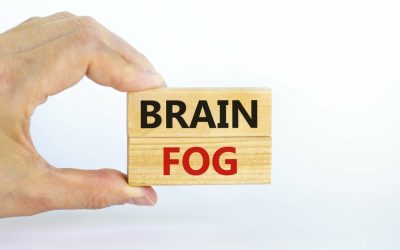Neuroscientist Adi Jaffe, Ph.D., who himself recovered from addiction, outlines five steps. • Empowerment—finding the wherewithal to cope with recovery and the challenges of life, which breeds a sense of self-efficacy. While the recovery period may be challenging, it’s also filled with milestones that can transform your life into one that’s better than you could have previously imagined. The mental challenge of this stage is not to let anything make you feel defeated. The abstinence stage typically begins right after you stop drinking.

What Are Other Tools And Strategies For Maintaining Sobriety?
Remember to care for yourself, seek supportive relationships, and consider seeking help from https://islamvevrazii.ru/en/compatibility-in-love-relationships-and-sex-compatibility-aries-and-virgo-boring-alliance/ a therapist. One common mistake for those who are new to alcohol and drug recovery is substituting a new compulsive behavior for their old one. People new to recovery can find themselves approaching their new diet, exercise program, job, and even participation in support groups with a compulsion that echoes addiction. You may also experience what is commonly called sobriety fatigue, which refers to the overall exhaustion that may occur as a result of the emotional and physical stress of staying sober. So, it’s extra helpful to have a support network available to you when you need it.
How common is relapse?

It may involve reaching out, attending meetings, or engaging in activities, but the benefits are invaluable. An encouraging and understanding network will strengthen your recovery and enhance your overall well-being. Remember, adjusting your sobriety checklist is an ongoing process that allows you to tailor your journey to meet your changing needs. It is important to be open-minded, seek support, and adapt your checklist for continued growth and well-being. By following these steps and staying dedicated, you can decrease the likelihood of encountering triggers and temptations during your recovery journey.

After Sobriety: Addiction Recovery Program
- To meet this goal, SAMHSA collaborated with federal, state, tribal, territorial, and local partners including peer specialists to develop the National Model Standards for Peer Support Certification.
- No matter what stage our guests enter treatment, we strive to meet them right where they are.
- A person cannot be in recovery without first achieving sobriety.
The challenge of this stage is to essentially develop and maintain healthy life skills that will serve you for a lifetime. An exciting part of this period is that it can lead you to a happier life full of welcomed change and constant improvement. Sobriety can be defined by focusing on its results and the means to reach them.
2 in 3 adults who ever had a mental health problem considered themselves to be recovering or in recovery. On March 1, 2022, President Biden announced his administration’s strategy to address our nation’s mental health crisis as outlined in the 2022 Presidential Unity Agenda. To meet http://www.k2x2.info/psihologija/_zhazhda_celostnosti_narkomanija_i_duhovnyi_krizis/p6.php this goal, SAMHSA collaborated with federal, state, tribal, territorial, and local partners including peer specialists to develop the National Model Standards for Peer Support Certification. This can include toxic relationships in which you feel unheard, misunderstood, unsupported, demeaned, unsafe, and/or attacked.
Timeline of Alcohol Withdrawal
For instance, you can start by meditating for 10 minutes every morning. Additionally, sharing the checklist with a sponsor or supportive individual provides extra accountability and support, allowing for valuable feedback, guidance, and reassurance. Cultivate healthy coping mechanisms like exercising, practicing mindfulness or meditation, or pursuing hobbies and interests. Recognize your personal triggers, such as stress, loneliness, or specific social situations. Incorporating practice mindfulness and meditation cultivates inner peace, reduces stress, and increases self-awareness. With consistent effort, experience the benefits on your recovery journey.
Benefits of Exercise in Substance Abuse Recovery
Brain chemistry rebalancing and improved bodily functions begin just days after stopping alcohol, but the extent and speed of recovery depend on individual choices. The brain exhibits remarkable resilience and can heal itself after the cessation of alcohol intake. After just three days of sobriety, brain regeneration starts as alcohol is removed from the system. The initial phase may be uncomfortable, with symptoms such as anxiety and nausea resulting from the withdrawal of alcohol’s sedative effects. I know you have some sights to “pop your head http://peacekeeper.ru/en/news/32630 into” some of those parties, but I encourage you to think all the way through and go into it with a navigable game plan. There’s a saying in AA about having “smart feet” at social events, especially ones where the booze and rowdiness become more tempting the longer you hang around.
